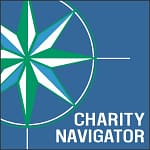Executive Summary
Background
In order to determine Illinois physicians’ attitudes toward the practice of medical aid in dying (also
known as physician-assisted dying), WebMD was engaged to conduct a survey using its
Medscape platform.
Key Findings
- By a margin of 58-25 percent, Illinois physicians support medical aid in dying or physician-
assisted death (MAID/PAD). - When asked whether they support or oppose potential MAID/PAD legislation–and informed
about eight stipulations in a potential law –support for MAID/PAD increased from 58 to 65
percent and opposition decreases from 25 to 20 percent. - A plurality (39 percent) of physicians prefer that professional medical associations adopt a
position of engaged neutrality, in which they neither support nor oppose MAiD/PAD, but
serve as an educational resource. The next most common stance preferred by respondents
(37 percent) was support for MAiD/PAD. - Illinois doctors are evenly divided on whether or not they would be willing to write a
prescription for a qualifying patient who requests MAID/PAD. Thirty-nine percent say they
would be willing to write a prescription, compared to 38 percent who say they would not.
Nearly one-quarter of physicians (23 percent) were undecided. - Sixty-two percent of Illinois doctors say they would like to have the option of MAID/PAD if
they become terminally ill, compared to 20 percent who would not.
Methodology
Medscape conducted this research by inviting randomly selected physicians from Illinois to participate via email invitations. Each respondent was sent a unique survey link through which they completed the survey and data was captured.
Medscape database includes self-registered, credential-certified physicians from Illinois. Additional survey responses were obtained from a Medscape partner organization. Medscape hosted the survey on its platform for 15 days, obtaining 409 responses that met targets for specialty and gender ratios based on the Association of American Medical Colleges (AAMC) 2021 Illinois Workforce Profile. Geographic regions were defined using Illinois State Zip Codes and Illinois State Medical Society Regions. This survey disproportionately targeted physicians with experience caring for patients at the end of life (80%) excluding certain specialties (dermatology, pathology, allergy, plastic surgery, pediatrics) in which there is minimal contact treating adult, terminally ill patients.
Profile of the Sample
This survey was completed by 409 Illinois State physicians.
Of that total, Primary Care Physicians (family physicians, general practitioners and geriatricians) represented 30% of the total. The remaining 70% represented multiple specialties. Eighty percent of respondents regularly cared for terminally ill patients, while 20% did not. More than one-third of respondents (35%) were female, while two-thirds (65%) were male. These demographic samples align with overall state demographics
according to AAMC.
TABLE: Demographic comparisons between AAMC Profile Data and Survey Sample
| AAMC Profile Data | Survey Sample | |
|---|---|---|
| Primary Care Physicians | 35% | 30% |
| Specialists | 65% | 70% |
| Men | 60% | 65% |
| Women | 40% | 35% |
Thirty-five percent of doctors surveyed were under 44 years of age, 43 percent were
between the ages of 45 and 60, and 22% were 61 or older.
Survey Results
Questions 1, 2, 4, 5 and 6 were answered on a five-point Likert scale, adding the
percentages in the five response categories can – due to rounding – total between
99 and 101 percent.
Question 1
Medical aid in dying (MAiD), also called physician-assisted death (PAD), is a practice in
which a terminally ill adult with decision-making capacity asks for and receives a
prescription medication that may be self-ingested to hasten a foreseeable death. Do you
support or oppose this option?
Results
By a margin of 58-25 percent, Illinois physicians support medical aid in dying. Among
supporters, 22 percent strongly support and 36 percent somewhat support. Among
opponents, 12 percent strongly oppose, and 14 percent somewhat oppose. Nearly one
in five physicians (17 percent) says they neither support nor oppose MAiD/PAD.
There is virtually no difference in support for medical aid in dying between physicians
who regularly cared for patients at the end of life (59 percent) as compared to those
who did not (57 percent). Opposition was identical for both groups at 25 percent.
- Strongly Support,
22% - Somewhat Support,
36% - Neither Support nor
Oppose, 17%
Somewhat Oppose,
13%
Strongly Oppose,
12%
Question 2
The Illinois State Legislature may introduce legislation that would authorize MAiD/PAD
with the following stipulations:
- Patient must be at least 18 years of age
- Patient must have decision-making capacity
- Patient must have prognosis of 6 months or less
- Two clinicians must confirm patient eligibility
- Patient must be able to self-ingest the medication
- Patients must be informed about all end-of-life options at the time of request
- Health professionals, including physicians, may opt out of participation
- Liability protection for physicians who participate in compliance with the law
Would you support or oppose this proposed legislation?
Results
By a margin of 65-20 percent, after learning about the stipulations, physicians support
legislation to authorize medical aid in dying.
As compared to Questions 1, when physicians were informed of the eight stipulations
included in potential legislation, support for MAiD/PAD increased and opposition
decreased.
Question 3
Which of the following positions should Illinois medical professional associations adopt:
- Support MAiD/PAD
- Oppose MAiD/PAD
- Passive Neutrality (Neither support nor oppose MAiD/PAD and remain silent.)
- Engaged Neutrality (Neither support nor oppose MAiD/PAD, but serve as an
information resource and provide input on legislative proposals.)
Results
A plurality of respondents (39%) preferred that medical professional associations adopt
a position of engaged neutrality, followed by support for medical aid in dying (37%).
Fourteen percent wanted medical associations to oppose medical aid in dying and 10
percent preferred passive neutrality.
Question 4
If MAiD/PAD was authorized in Illinois, physicians who choose not to participate should
refer patients who request MAiD/PAD to a participating clinician or provide them with a
reliable resource for information. Do you agree or disagree?
Results
Overall, 74 percent of physicians agreed that clinicians who choose not to participate in
medical aid in dying should refer patients or provide them with reliable information. Only
12 percent of physicians disagreed. Opposition was highest among physicians who
preferred that professional medical associations oppose medical aid in dying.
Question 5
If MAiD/PAD was authorized in Illinois, I would be willing to write a prescription for a
qualifying patient. Do you agree or disagree?
Results
Illinois physicians were equally divided among those willing to write a medical aid-in-
dying prescription (39%) and those unwilling (38%). Physicians who regularly care for patients at the end of life were more willing to write a prescription (43%) than those who
do not (24%).
Question 6
I would like to have the option of MAID/PAS if I become terminally ill. Do you agree or
disagree?
Results
Sixty-two percent of Illinois physicians would like to have medical aid in dying available
as a personal option in the face of terminal illness. Twenty percent do not. The degree
of support is slightly higher among physicians who regularly treat terminally ill patients
(64%) than among those who do not (54%).
Geographic Comparisons
Zip codes were used to categorize respondents into five regions across the state. Utilizing the Illinois State Medical Society Region boundaries, we grouped respondents into Cook County (Region 3), Surrounding Communities (Region 2), and Rural Communities to the West (Region 1), Southwest (Region 4) and South (Region 5). See map at right. Overall, rates of support for medical aid in dying were similar across geographic regions, ranging from 55 to 63 percent. Opposition ranged from 21 to 31 percent. When stipulations of a legislative proposal were provided, support increased across regions (ranging from 63 to 70 percent) and opposition decreased (ranging from 19 to
24 percent). It should be noted that Region 5 data, taken alone, showed the lowest rate of support
(33 percent) and the highest rate of opposition (47 percent) to MAiD/PAD. This variation
may be due to a small sample size available from Region 5. As in other regions however, once stipulations of the legislative proposal were provided, support among
Region 5 respondents increased (from 33 to 40 percent), while opposition decreased
(from 47 to 33 percent).
A majority of physicians in every geographic region, except Region 2, indicated that “engaged neutrality” was their preferred stance for medical professional organizations. Among Region 2 respondents, the preferred position was “support” for MAiD/PAD. “Engaged neutrality” was the second most preferred stance in Region 2. “Support” was the second most preferred stance in every other region except Region 5 where “support” and “oppose” were tied at 20 percent. Region 5 respondents had the highest
level of support (53 percent) among any group for “engaged neutrality.”
Analysis by Age
Respondents were divided into 3 age groups for comparison: 44 and younger, between 45 and 60 years of age, and 61 and older. Support for MAiD/PAD was slightly higher for the youngest age group (62 percent), while opposition was lower (21 percent) as compared to older groups. After stipulations were included, support increased and opposition decreased in every age group.
In every age group, a plurality (from 38 to 41 percent) preferred that professional medical associations adopt a position of “engaged neutrality.” The second-most preferred position in every age group was “support” for MAiD/PAD.






